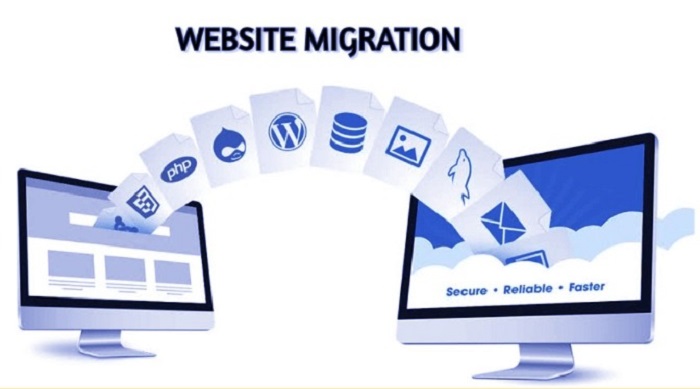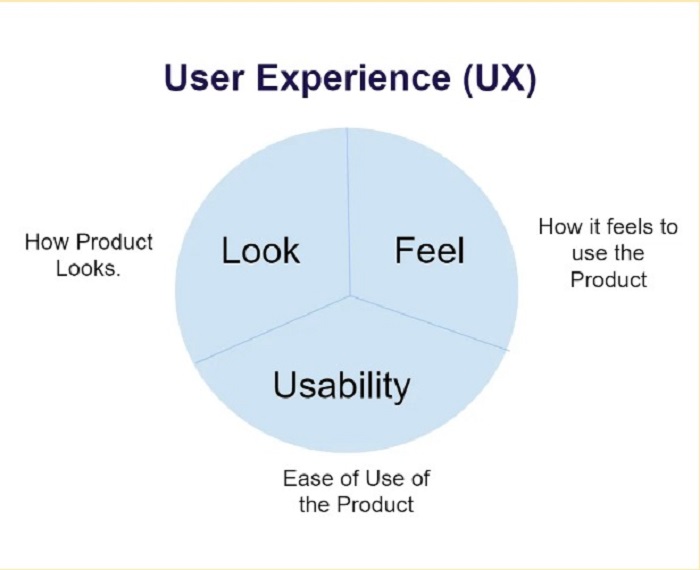Every established business feels the need to migrate its website from existing technology to a newer one at some points. The primary reason behind that is the necessity to adapt to newer technologies with the ever-changing market conditions and consumer behavior. Additionally, with the evolving technological revolutions, it’s also become mandatory for businesses to move to newer tech stacks to ensure enhanced performance and productivity through their websites.
The question that arises here is, “how would I know that my website needs migration?” And what’s the best way to approach this?
This post discusses all relevant aspects related to website migration to help businesses assess and re-evaluate their website performance and stay competitive.

Common Reasons to Migrate Your Website
Site migration is a broad concept and involves various complexities, hence, you must understand the reason for migrating your business website and then decide on a suitable web development company to get it done. Here are some major reasons why you must consider website migration:
1. Inconsistent User Experience & Look

Make sure that your website offers consistent navigation throughout all web pages with the same level of visual appeal. For instance, if a visitor clicks on a link and is taken to a page that just doesn’t reflect the feel of your previous page will compel him to worry that he is redirected to some malicious page. As a result, he will quit your website without any second thought and chances are that he will never revisit your site. Remember, if a visitor notices even the slightest differences like different navigation menus on different pages or buttons with different sizes can also frustrate them resulting in an increased bounce rate.
Hence, design inconsistencies are a major cause of distrust among your website visitors. You must ensure proper and professionally designed web pages including color palette, fonts, button styles, and iconography.
2. Obsolete Framework
Consumers prefer using apps and websites which adhere to the latest technologies allowing them convenience and flexibility to a great extent. So, if the framework that you have used to develop your website has become outdated, you must consider migrating to newer technology to assure increased traffic on your web pages along with enhanced conversion rates.
Whether from a CMS point of view or the programming language, choosing the latest and most advanced tech stack will come with multiple benefits keeping your business in the race. Moreover, ensuring cross-platform compatibility is also a crucial factor to gain maximum attraction for your website. Mobile usage has grown to a significant level these days and people prefer browsing different products and services through their smartphones.
According to Statista, 55% of global web traffic comes from mobile internet usage. Hence, you must consider this fact to get good traffic on your website by making it accessible via mobile phones. Choosing the latest tech stack is a proven way that global businesses have used to transform their web presence and to ensure smooth performance along with enhanced loading speed of their business website.
3. Loading Time: A Make-or-Break Factor
The loading speed of your business website is a much dominant factor that can make or break your brand image. A recent study by websitebuilderexpert reveals that more than 40% of visitors leave a web page if it takes more than 3 seconds to load. However, the loading times for desktops and mobiles are different but you must ensure the quickest loading time for your website on both.
Apart from this, loading time is also a crucial aspect to gain top SEO ranking as Google specifically prefers swift loading of websites in its search results. There’s a common myth that website migration affects SEO. When you migrate your website, Google has to re-index it and this may result in a normal dip in your organic traffic but this is on a short-term basis. If you are migrating to a newer technology that speeds up the loading time of your website, you will certainly get much better results in the long term from your SEO practices than before.
You just need to consult your SEO team before migrating and discuss the scope of migration with it and prepare a checklist plan to avoid any major inconvenience post-migration.
4. Poor Website Security
Cyberattacks are targeting global businesses irrespective of their size and nature and therefore, it becomes much imperative for any business owner to ensure its website security on a priority basis. A report by Statista states that more than 53 million individuals experienced data compromises in the US and that too, in the first half of 2022. These security issues included data breaches, data leakage, and data exposure.
So, if your website runs on an HTTP protocol, you must consider migrating to HTTPS for enhanced security. Besides this, even if your website uses HTTPS protocol, you must again ensure better and advanced security measures to avoid intruders stealing your sensitive data and ruining your brand image in seconds. Migrating to ASP.NET Core and Node.JS are much more reliable and are preferred by worldwide developers to ensure impeccable website security.
5. Server Requirements
Most startups and small businesses often use shared web hosting because of its affordability. Issues start arising when your business starts getting bigger and your website requires much space on the server due to sudden upheaval. Switching to dedicated hosting may prove quite risky as it’s much more costly and you never know when the traffic declines suddenly. In this case, opting for cloud services is the best option. Migrating to the cloud offers multiple benefits and allows startups and small businesses to compete with key players offering a full-fledged IT infrastructure that is much more flexible and affordable. You pay for what you use and it goes smoothly adjusting your server resources in peak times and during downswings.
How to Ensure an SEO-friendly Website Migration?
Migrating a website to a newer framework or technology requires transferring various aspects of a website from content to data, and to make sure that this least affects your SEO, you must consider some crucial steps to gain maximum from your website migration.
Hire a Trusted & Professional Website Migration Service Provider

Approaching a professional and reputed website migration service will reduce much burden on your shoulders. Also, be as clear with your migration objective as you can and discuss it with the team. Website migration service providers thoroughly evaluate your website and its various aspects and prepare a comprehensive checklist regarding what to include in migration and what not.
These guys are experts in identifying the potential issues in your current website version and then preparing a perfect strategy to address them in the newer version. These benchmarks will also help you to set new KPIs for your team and align with the process of a newly migrated website.
Here is a brief checklist that you must consider and discuss with your migration service provider:
# Website Audit SEO Goals
# Site Performance & Page Experience
# Site Architecture & Content Structure
# Choosing the Right CMS
# Wireframe Review
# Identify Your High-performing Pages
Endnote
We hope you must have got enough crucial insights on your website and its performance-related metrics and now you can easily decide whether to migrate it to a new framework or not. So, if your business website is not yielding acceptable results, it’s high time to think over its migration to a framework that adds to its performance, speed, and productivity.




